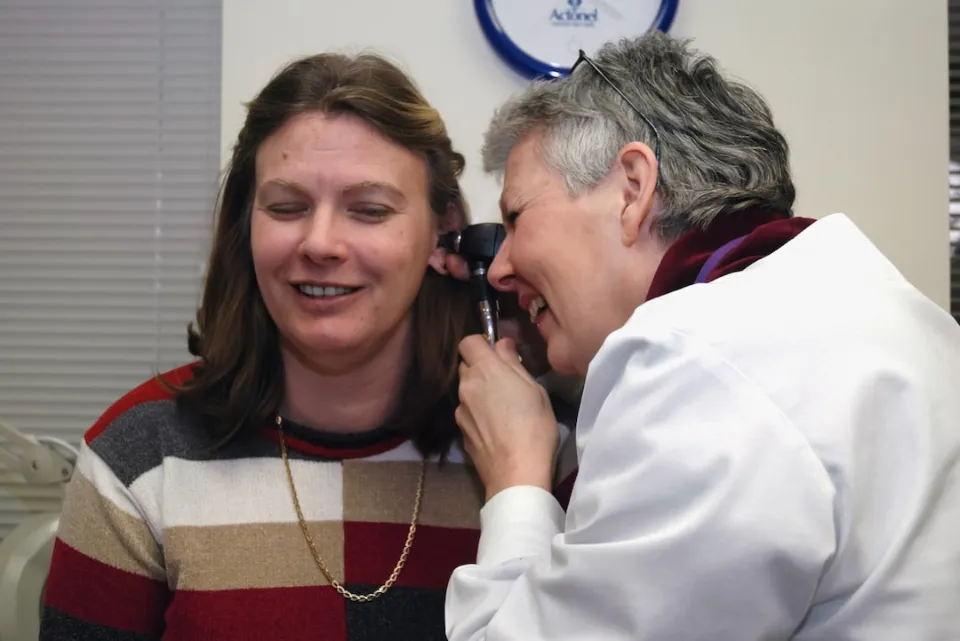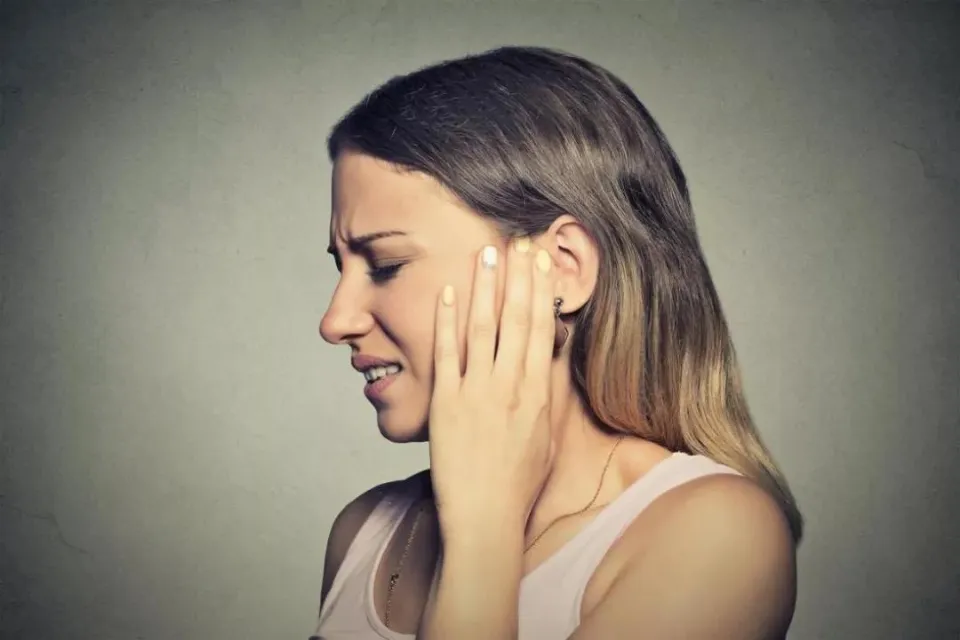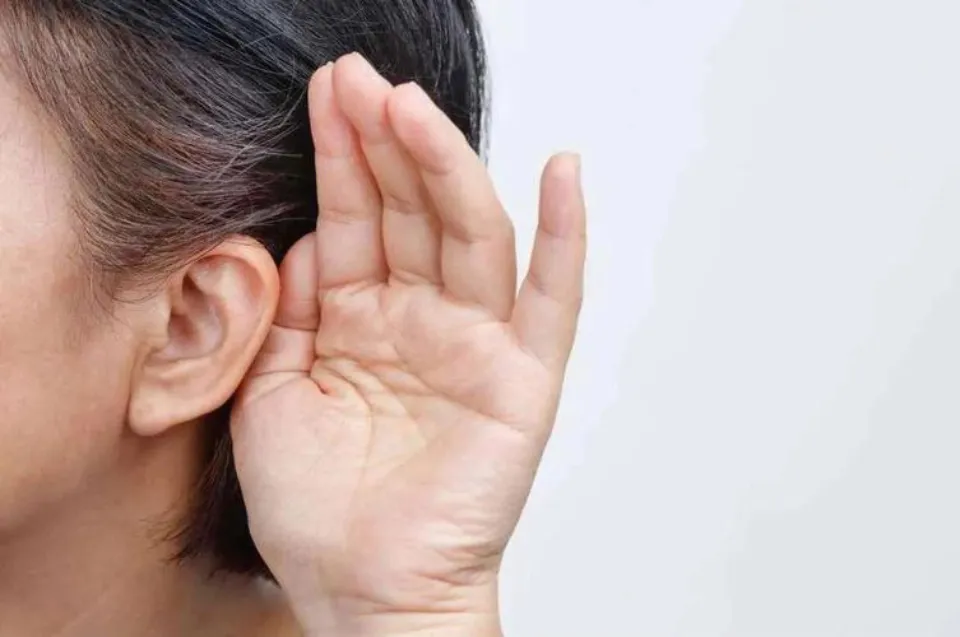
Can A Tooth Infection Cause Tinnitus – Why Does It Happen
Tinnitus may be the cause of any ringing or buzzing you hear in your ears. While there are many possible causes for this condition, one that is frequently disregarded is wisdom teeth.
One of the most common causes of ringing in the ears is tooth infection, which can also put pressure on your TMJ and make the ringing worse.
Have you noticed any associations between tinnitus and wisdom teeth? An in-depth analysis of this topic reveals how impacted wisdom teeth, dental procedures, and other factors may contribute to the development of ringing in the ears. Let’s find out!
What is Tinnitus?

Tinnitus is characterized as a ringing, roaring, buzzing, hissing, or whistling sound that can be intermittent or constant.
Tinnitus, also known as ringing in the ears, is not a disease in and of itself but rather a sign of other diseases.
Instead of being a disease, it is an indication of some other health issues, and it frequently disappears over time as the indication heals. Most of the time it is an indication of
- Musculoskeletal problems
- Vascular Disorders
- Meniere’s disease
- Hypertension
- Hyperthyroidism
- Anemia
- Hypercholesterolemia
- Hyperlipidemia
The Relationship Between Wisdom Teeth and Tinnitus

Many people may not be aware of the connection between wisdom teeth and tinnitus, but it is a problem that many people struggle with. This association may be caused by the fact that impacted wisdom teeth can cause nearby tissues to inflame, which can then spread all the way up to your middle ear, which is close to the third molars.
Read More: Can You Get Wisdom Teeth Removed While Pregnant
Tinnitus, a condition that causes ringing, buzzing, and other sounds in the ears, can result from irritation of the middle ear. Despite the fact that we are still unsure exactly how this occurs, research indicates that it may be related to alterations in how the brain processes sound.
If you are in pain because of one or more of your wisdom teeth that are impacted or infected, it is imperative that you schedule a consultation with a dentist or oral surgeon. You can frequently reduce swelling and prevent tinnitus from starting by having your wisdom teeth removed.
Can a Tooth Infection Cause Tinnitus?
Research does support the theory that tooth infections can result in tinnitus. Ringing in the ears can be brought on by abscesses in the teeth and impacted wisdom teeth. The majority of the time, however, abscess-related tinnitus resolves on its own and doesn’t need any additional care.
Increased blood flow through the ears, which results in tinnitus, is the mechanism by which ringing in the ears is brought on by tooth infection. infection in the tooth causes increased heart rate increasing the blood flow through the ears and ultimately causing ringing in the ear.
Second, abscess-related tooth inflammation results in temporomandibular dysfunction, which also causes tinnitus. this tinnitus caused by TMJ dysfunction is resolved as a result of dental care.

In addition, hearing loss and tinnitus can result from the extraction of infected and impacted wisdom teeth.
Additionally, studies have demonstrated that ringing in the ears can result from an infection in the upper third molar tooth. Dental procedures can be used to treat the tinnitus brought on by these conditions, and it usually gets better with time.
So, can tinnitus be brought on by a tooth infection? research and studies also say YES.
Tinnitus and Other Dental Problems
Several other dental issues, such as bruxism, can also contribute to tinnitus. Mercury fillings, Dental drills, ultrasonic plaque removal, etc
A condition called pyorrhea is linked to gum pus discharge. it affects gums and bones. Meniere’s disease and tinnitus are also brought on by it. Gum disease brought on by toothpick use is a common cause of pyorrhea.
Bruxism is the involuntary clenching of jaws and grinding of teeth. this condition also causes temporomandibular joint dysfunction ultimately leading to Mouthguards that can help with tinnitus relief.
Dental Fillings are composed of 50% of mercury and about 30% silver. Since mercury causes neurotoxicity it causes tinnitus and hearing loss.
Read More: How Long Do Fillings Take for Tooth Cavities
Dental Drills are a source of high pitch noise. this noise is transmitted to the inner ear through bone conduction and it causes the intensity to become even high. this noise can cause tinnitus. using earplugs and anesthesia also does not prevent tinnitus during dental drills. Short splurges of 5-10 seconds are recommended rather than long sessions,
Ultrasonic Plaque Removal Some patients’ tinnitus is also brought on by the use of high-frequency ultrasonic tools. therefore compliance with mechanical tools is greater than with ultrasound tools in patients.
Can Tooth Decay Cause Tinnitus

Even though tooth decay and tinnitus are two distinct conditions, there is some evidence that suggests tooth decay and other dental issues may be triggering factors for tinnitus. This might be because some of the bacteria that cause tooth decay can also affect the inner ear and cause inflammation, which can cause tinnitus. The precise connection between tooth decay and tinnitus needs to be determined, though, and more research is required.
How to Get Rid of Tinnitus Fast?
The goal of all tinnitus treatments is to eliminate the underlying cause. There are numerous methods for controlling and reducing tinnitus. The most common are.
Dental treatment
Tinnitus disappears as soon as the underlying dental issues are treated, so getting treatment is crucial. Tinnitus naturally disappears as the dental infection is treated. Eliminating TMJ dysfunction also aids in tinnitus relief. use of short bursts of ultrasound treatment is also helpful for patients that can develop tinnitus with ultrasound plague removal treatments.
Cognitive therapy
To manage tinnitus, cognitive therapy involves behavioral changes. Being non-pharmacological and simple to implement, it is a good method to manage tinnitus.
Medications
Low-dose anti-anxiety medications and some hormones, such as misoprostol, are very helpful if anxiety or stress are the primary causes of tinnitus. Lidocaine is very effective if an irregular heartbeat is the underlying cause.
Patients who have hypertension run the risk of developing tinnitus. Antihypertensive drug use in such patients reduces the possibility of tinnitus development.
Tinnitus Retraining Therapy

In this therapy, a signal from the subconscious mind is removed through a filtering process. It eliminates the tinnitus trigger movement. Some sounds from everyday life may become ingrained in our minds, which helps us to ignore them as if they are unimportant.
Conclusion
So, can ringing in the ears be brought on by a tooth infection? Infection in the tooth increases blood flow in the ear, which causes hypertension and eventually tinnitus. In this way, tooth infection and tinnitus are related, but this condition is not too concerning because tinnitus brought on by tooth infection typically goes away as the underlying condition is treated.
FAQs
Can Tinnitus Be Dental Related?
Trauma, middle ear blockages, inner ear pressure, and other conditions that interfere with the eardrum’s normal function are frequently associated with tinnitus. Tinnitus may occasionally be related to your teeth, specifically tooth trauma, oral health problems, or even dental procedures.
Can a Dental Infection Cause Ear Problems?
The nerves in the upper jaw are particularly close to the ear canals and carry pain signals to and from your teeth. These nerves run through your jaw. Therefore, referred pain from an infected tooth can also cause an acute earache.
What Infection Causes Tinnitus?
Common causes of tinnitus include ear infections. Ear infections can come in many different forms. The likelihood that ear ringing will develop, however, is higher with middle ear infections and inner ear infections (otitis media). The hair cells may suffer direct harm from bacteria and viruses.





Average Rating